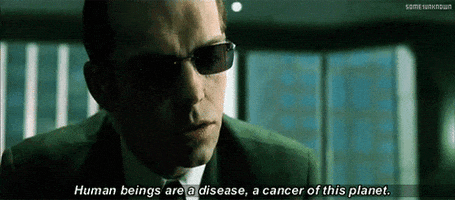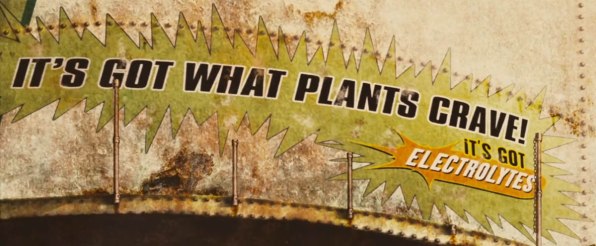- Joined
- Sep 20, 2004
- Messages
- 11,767
- Reaction score
- 11,855
I can say confidently that one thing the Earth doesn't need more of is people.
The one's already here are doing a very fine job destroying it.

I can say confidently that one thing the Earth doesn't need more of is people.
The one's already here are doing a very fine job destroying it.

I can say confidently that one thing the Earth doesn't need more of is people.
The one's already here are doing a very fine job destroying it.
Globalization has peaked and the process of deglobalization is soon to become evident and this will lead to shortages and the birth rate will continue to fall. The population will peak in a decade or two and then decline. Unofficial reports from China suggest that this is already happening.I can say confidently that one thing the Earth doesn't need more of is people.
The one's already here are doing a very fine job destroying it.
You think we've had zero impact on the planet and biodiversity? Hard disagreeThe Earth has been around for a very, very long time. It cares not about humans and never will.
I'm honestly surprised to read such anti-humanist posts on a board about oncology. If you think there are too many humans on the planet why are you trying to save some of them?
Seriously.The Earth has been around for a very, very long time. It cares not about humans and never will.
I'm honestly surprised to read such anti-humanist posts on a board about oncology. If you think there are too many humans on the planet why are you trying to save some of them?
You think human beings and development are anti human ?! To even cause pollution, you’ve improved the lives of millions.You think we've had zero impact on the planet and biodiversity? Hard disagree
Climate change is Anti-humanist
No one is saying to be anti life, but to try and at least acknowledge how we impact our planet and humanity going forward isn't a terrible thing is it? Is responsibility and sustainability for the planet anti human? I'm guessing the folks in Maldives and Pakistan would say notYou think human beings and development are anti human ?! To even cause pollution, you’ve improved the lives of millions.
I don’t understand this anti life sentiment.
I guess we could be like that one indigenous Brazilian dude that just died, the last of his tribe. Doesn’t seem very fun, tho
On a human timeframe? Humans have had a huge impact on the planet and biodiversity.You think we've had zero impact on the planet and biodiversity? Hard disagree
Climate change is Anti-humanist

Would you say most of them are happy with their choice?Feel free to DM me. A lot of my friends from med school, and close friends in general, are radiologists.
Yes, please stay in a field that does not perform suicidal non-inferiority studies on its own modality.Sounds like you're an R1 at a presumably top DR program given your stats. Radiology is tough and it's not uncommon for junior residents to think about quitting. I would advise against switching to rad onc but if you really hate DR that much and want to treat cancer, you can switch into IM the med onc. I know of a few who switched into IM after 1 year of DR who are now happy fellows in an IM subspecialty.
Is even crazier if you propose some equivalent studies that radiology could do, that would mimic what our leaders have done:Yes, please stay in a field that does not perform suicidal non-inferiority studies on its own modality.
I hate to be that guy but most large scale radiology studies on incidental findings aim to reduce the number of follow ups (Fleischner criteria, TI-RADS, etc.).Is even crazier if you propose some equivalent studies that radiology could do, that would mimic what our leaders have done:
Phase II trial comparing q3 month followup CT's vs q6 month
Phase III comparing laryngoscopy and neck palpation vs 12 week PET, non-inferiority study
I hate to be that guy but most large scale radiology studies on incidental findings aim to reduce the number of follow ups (Fleischner criteria, TI-RADS, etc.).
It just so happens there's a healthy amount of research from radiologists and non-radiologists on areas to improve (and increase) imaging volumes.
I don't think radiologists are the ones really interested in this. The people that order the tests are the ones that care. Rads is at the receiving end and unlike us, they don't cut themselves off at the knees.Are there randomized trials in the post cancer treatment setting exploring q3 month, q4 month, q6month follow up scans? Problem with our field is that went do non-inferiority studies in things that will clearly not show a difference and therefore reducing our treatments. I can't imagine radiology has done (please correct me if I'm wrong) a study comparing q3month and q4 month. Almost certainly the study would show that q4 month is "non-inferior" to q3 month and for post cancer treatment the number of CT's I order would drop by 25%.
Big time. From what we are seeing now, it looks like a real threat imo... Months earlierTheoretically if all these ctDNA/minimal residual disease assays become better validated then they could be used to reduce imaging frequency and serve as a trigger for imaging once a patient has a detectable biomarker.
Theoretically if all these ctDNA/minimal residual disease assays become better validated then they could be used to reduce imaging frequency and serve as a trigger for imaging once a patient has a detectable biomarker.
Big time. From what we are seeing now, it looks like a real threat imo... Months earlier
I remember on my radiology rotation one of the radiologists being like “they (the docs ordering scans) order pizza from me; occasionally I ask if they want pepperoni”I don't think radiologists are the ones really interested in this. The people that order the tests are the ones that care. Rads is at the receiving end and unlike us, they don't cut themselves off at the knees.
My friend who is an academic h&n radiologist said that his world was simply not informed by RCTs and EBM. He sees what he sees. I tried to find examples that would contradict him, but basically he was right. All the studies are for the clinicians. He interprets studies and that is that.
To be fair it's a technology also championed by the incoming NCI director (surgical oncologist by training)Though, this was kind of my point. Are radiologists PI's on these studies? Pretty sure not! I guess my complaint wasn't so much that there are studies exploring and or comparing radiation vs alternatives, but they are spearheaded, run and championed by Radiation Oncologists themselves!
Also agree, ctDNA could be game changer from an imaging perspective.
ctDNA may be great for reducing routine follow ups but it doesn’t eliminate imaging. Still gotta find the tumor once it grows back to be a threat…Though, this was kind of my point. Are radiologists PI's on these studies? Pretty sure not! I guess my complaint wasn't so much that there are studies exploring and or comparing radiation vs alternatives, but they are spearheaded, run and championed by Radiation Oncologists themselves!
Also agree, ctDNA could be game changer from an imaging perspective.
Doc… Shouldn’t We Be Getting Some Tests?Breast is so weird. We have these sites with reflexive q3month-q6month or annual f/u imaging and in breast, you can have an obviously terrible biology breast CA and you have to fight to justify systemic staging imaging even in locally advanced disease (are they afraid of finding metastatic disease). While there is fairly liberal use of breast MRI at diagnosis leading to excess in-breast biopsies, there is no expectation for serial brain imaging in subsets of breast CA with ~40% chance of developing brain mets.
In breast, medoncs already use marginal tumor markers to trigger f/u imaging.
Big time. From what we are seeing now, it looks like a real threat imo... Months earlier
20+ years later still unaware of any surveillance test, whether lab or imaging, demonstrating an improvement in survival with early detection.
Of course we would, but if ctDNA final data looks like initial data, it will drastically reduce the volume. For example, if one is getting ctDNA and can rely on it, why would you get imaging at all if it stays at 0? Additionally, even if you get imaging "just in case," why would you get it as often? Even a drop from q3 month to q6 month represents a 50% decrease in radiology volume for whichever disease site we are talking about. I could also see a world where they were followed with ctDNA and only got imaging if it changed, which is hard to fathom, but not out of the realm of possibility.ctDNA may be great for reducing routine follow ups but it doesn’t eliminate imaging. Still gotta find the tumor once it grows back to be a threat…
Unless of course you are arguing that ctDNA then eliminates all locally guided therapies, then both radonc and surgonc are very much in trouble.
Think of all the colorectal patients after surgery….Of course we would, but if ctDNA final data looks like initial data, it will drastically reduce the volume. For example, if one is getting ctDNA and can rely on it, why would you get imaging at all if it stays at 0? Additionally, even if you get imaging "just in case," why would you get it as often? Even a drop from q3 month to q6 month represents a 50% decrease in radiology volume for whichever disease site we are talking about. I could also see a world where they were followed with ctDNA and only got imaging if it changed, which is hard to fathom, but not out of the realm of possibility.
